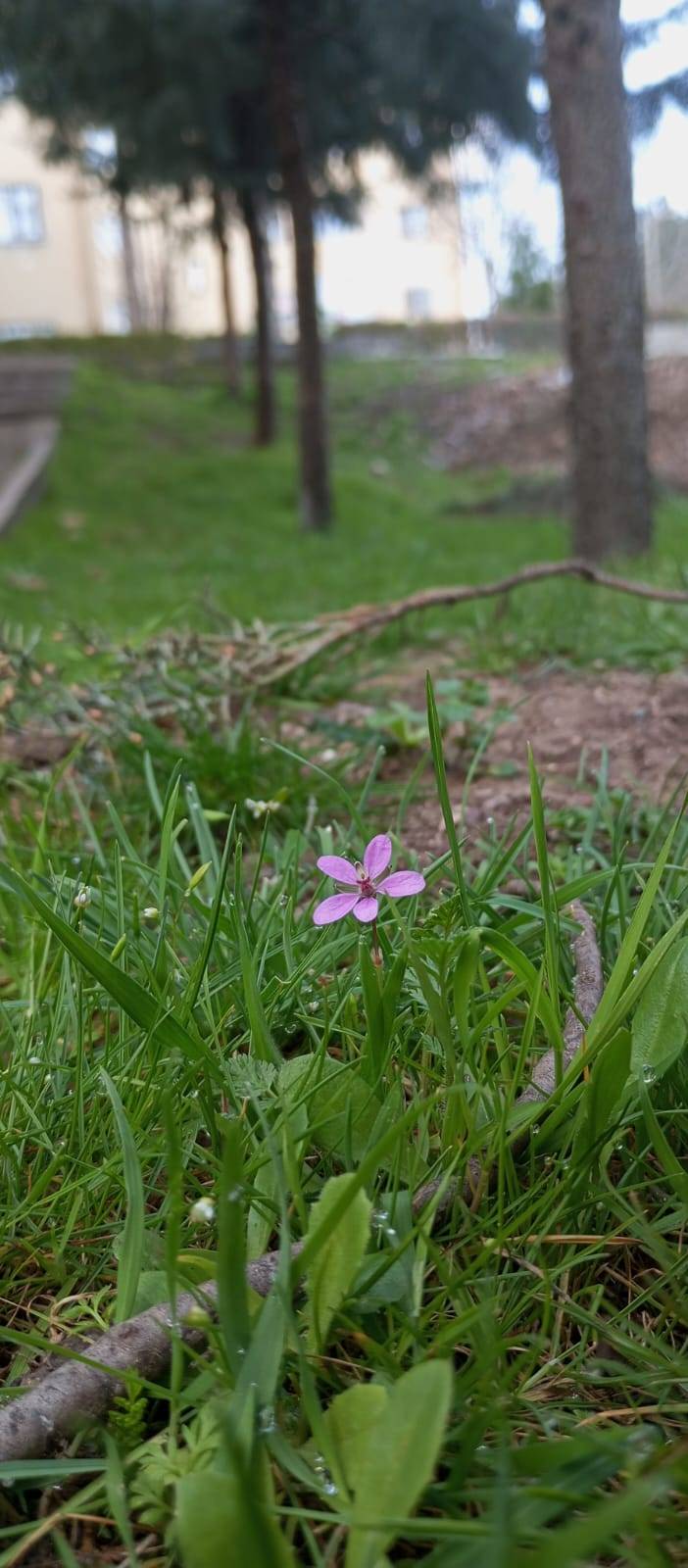#firdevs
Text
“Firdevs Hanım and her daughters, especially Nihal and her father, them too” is always so great a sentence to me… For two reasons:
1) Critics love saying that Nihal and her family are idealized and Bihter and her family are realistic, but here Halit Ziya is saying that Nihal and her father especially are taken from life.
2) “Firdevs Hanım and her daughters” and “Nihal and her father”… I just love it so much. Halit Ziya does not see this as the story of wife/husband/lover. Bihter is “Firdevs Hanım’s daughter”. Adnan Bey is “Nihal’s father”.
@literatureismyentirepersonality @pileofsith @princesssarisa @ariel-seagull-wings @the-mad-woman-in-the-attic @moonsingh
25 notes
·
View notes
Text
Aşk-ı Memnu: Attempting a Pre-lapsarian Reading
@faintingheroine I’m so so glad that you introduced me to this book, and a lot of this analysis will be heavily influenced by you and your thoughts. We discussed pre-lapsarian readings quite a lot, but I wanted to see if I could give it a proper treatment. The translation I’m using can be found here.
The main concept of the argument hinges on the names of Adnan Bey and Firdevs Hanım: Adnan’s name meaning ‘the one who achieves immortality in heaven/Eden’ and Firdevs’ name meaning ‘Heaven’/’Paradise’.
Aşk-ı Memnu means ‘Forbidden Love’, and it’s possible to view love itself as the forbidden fruit of this Fall, or rather, collection of Falls. In Adam and Eve’s original tale, Adam’s love for Eve is sometimes viewed as the cause of his Fall, and he is blamed for being seduced, transferring agency to him rather than Eve.
To take the story first from Bihter’s perspective, Adnan is her Eden. She cannot create herself as an entire woman until she has escaped from her mother, but once she is in Eden, she is dissatisfied; ‘she want[s] such a love that it would leave an intoxicating faintness in her soul’. She feels the knowledge of love calling to her and Falls first not to Behlül (the one who laughs, but also not dissimilar in sound to Belial, another name for Satan— I cannot discover whether this tracks into Islam and the Turkish language, so I may be wrong to suggest this one), but to herself, when she makes that discovery of what love is:
Suddenly, in this semi-dark room, amid the slumbering silence of this house, as the tinted glass of the lamp above her head rained colourful shadows and seemed to enliven the furniture around her with an unfelt breeze, she shivered to find herself so naked, and feared the loneliness. No, this was such an emotion that it was closer to shame than to fear. She was ashamed, as if she had done a great wrong, ashamed that she had sinned unthinkingly against her virtue. She had fallen into the arms of an unknown lover who entered the privacy of her chamber secretly, and her first sin of passion had been committed in an irresistible nervous trembling. (Chapter 8)
Note how the room is ‘semi’ dark, how Bihter has been standing in the window, occupying liminal spaces that could represent her in-between state, the precipice of the Fall.
Bihter’s second Fall is more traditional. Behlül becomes a tempter, as he has tried and failed with Peyker, but unlike Satan, he lacks magnitude. He is opportunistic, casual. His Falls are more like flights of fancy and his temptations are boyish, almost innocent. They are in the room that serves as an entryway to his bedroom, neither completely sequestered in his private quarters, nor in the general space of the house and much of the action between them takes place in this in-between space. ‘[T]he red eyes of the stove were lowering their eyelashes’; ‘white snowflakes were falling’ (emphasis mine); Bihter is Falling.
The second Fallen figure I would like to consider is Behlül himself. Behlül is not someone who Falls once or twice, but someone who seems doomed to Fall over and over again. He seems to Fall for almost every woman he meets, but his two particular Falls are for Bihter and Nihal.
In a second Behlül had gone so far that it was now no longer possible to turn back (Chapter 10)
At last, the little love stories of his life had been closed, now a long love story, with all its passions, desires, fevers, happinesses, had begun. He was finding all the old memories petty, lowly. They had become like rough drafts that had been scribbled over as a child, which one, embarrassed, wanted to tear out and throw away, to burn to ashes. Now he was going to write a perfect chapter of his love life, and after this chapter, he could end his love story. (Chapter 11)
He is insistent on the uniqueness of this, the irreversible romance of each Falling, yet his feelings for Nihal are almost identical:
Before this tableau of the old dream, he was thinking of his own life, of the life whose final page would perhaps be closed tonight, with one word from Nihal, of the life that would resemble just this view, turned into an abandoned ruin with its faded lines, its washed-out planes. Already that life seemed to have grown distant through an interval of long years; all those faces, even Bihter, all those memories belonging to yesterday, had been buried in the ruins of that old dream, far away, beyond such a wide sea. Now beside him, a fresh flower of hope was promising him the horizon of a new life with its shy glances. (Chapter 19)
He does not learn; after the close of the novel, it seems he may well have disappeared from Adnan Bey’s Eden to Fall again. He is a man; he may do so.
Last of the main three, but certainly not least, Nihal’s Fall is more complex and more gradual, less borne of single instants than Bihter and Behlül’s. The entire narrative encompasses her Fall, a Fall of a thousand moments. If Adnan Bey is Eden, then so too is Nihal’s childhood and his fatherly state. The more Nihal learns of love— at the wedding (noticeably we follow Nihal and the bride in that strange part of the day where the wedding has begun but the marriage has not, that precipice of Fall), by observing Bihter, by wearing sheets, by releasing Bülent, whose removal from the room is an acknowledgement of their adult genders— the more she edges towards her Fall. Even when she consents to marry Behlül, the Fall is not complete. It is not complete until she literally falls down those liminal stairs and lands at the bottom with Behlül and Bihter, the Fallen. She knows what love is; she knows what love can do. Adnan Bey carries her back upstairs, reclaims her for Eden, but this cannot last. The novel closes uneasily, ‘ a fear [...] passing through her mind’ as Nihal knows that Adnan Bey cannot live forever and she must one day leave Eden. She seems almost to resolve on death to escape passage into the next stage of life; a key parallel to Bihter.
I turn now to Firdevs. Is she not the epitome of the Fallen Woman? She Fell before the tale began, she seems determined to keep Falling until it kills her. Yet she is Paradise. What Paradise can this woman represent?
If my understanding is correct, Halit Ziya was familiar with Western traditions; likely familiar with Felix Culpa or the happy mistake. This is a view which suggests that the Fall is not actually a bad thing, but rather the only way humans could truly understand good and evil in the way God does and fulfil their destinies.
Firdevs has lived with her mistakes and she suffers for them, a kind of purgatory or barzakh. Perhaps she will attain Paradise because she is willing to live with herself in a way that Bihter and Nihal are not. It’s interesting that Behlül is the one most willing to sympathise with Firdevs; he is the one who leaves Eden and lives, the one who seems most likely to follow her path in life.
Bihter and Nihal will not wait for the Paradise of Heaven; they will not wait to become Firdevs. The Fall is too much for them and the loss of Eden too terrifying.
Beşir’s position in this reading is particularly interesting. He is the one who brings revelation, ‘the one who brings good news’. Ostensibly, the news is hardly good, but it is truth. He becomes almost a stand in for the God of Adnan Bey’s Eden. He even potentially redeems Nihal from her Fall, a Christ figure, sacrificed for the sins of the others.
Ultimately, it is not simply love that is forbidden, but knowledge of what it is to love. Nihal struggles against this knowledge and in the tragic conclusion, finally Falls. She can pretend to be firmly in Eden at the close of the novel but her knowledge is inescapable. She forbids herself from romantic love, tries to evade it, but the Fall must happen, and she cannot stall it forever.
#Aşk-ı Memnu#nihal#bihter#behlül#firdevs#adnan bey#halit ziya uşaklıgil#pre-lapsarian reading#or mid-lapsarian rather
29 notes
·
View notes
Text
"Heyecan her yaşta güzel bir şeydir, ama her durumda sonu güzel bitmez. Tutkuyla atılan yanlış adımlar, insanı felakete sürükler. Bazen anlık heyecanlar, ömür boyu yük olur insanın sırtında, pişmanlık olur, utanç olur, vicdan azabı olur -ki çekmesi çok zordur. 'Gençlikte olur.' deyip geçilemez bazı şeyler. İnsanın koparıp atamayacağı bağları vardır; arkasını dönüp gidemeyeceği durumlar, inkar edemeyeceği borçları vardır. Bütün bunlar anlık heyecanlara feda edilemez... Hayat sadece anlık güzelliklerden ibaret değil, cehennemi de bu dünya da yaşar insan. Ben, yanlışlarımdan edindiğim tecrübelerle ikaz etmek istedim sadece."
3 notes
·
View notes
Note
What do you think might be the significance of both Adnan and Firdevs being named after Heaven?
That is an interesting parallel. I think both you and I have talked a fair amount about the way they mirror each other in the narrative. Each is the only surviving parent of one of the two heroines, Nihal and Bihter, who for various reasons both resent their parent and long for his/her love, although Adnan has always been a loving, caring parent while Firdevs hasn't, and for that reason Bihter is predominantly resentful and wants to break away from her mother, while Nihal mainly wants her father's undivided attention back.
Their names' similar meanings might also suggest that they should have married each other. They're close to the same age, after all, and we're first introduced to Adnan through Firdevs' interest in him. Not that they would really have been a good match either: Nihal would have come to hate any woman her father married, and Firdevs wouldn't have made the effort that Bihter does to get along with her. But at least the specific tragedy of Bihter, stemming from the age gap in her marriage and her lack of sexual attraction to Adnan, would have been avoided.
The name-meaning seems especially fitting for Adnan, because he's central to Nihal's and initially Bihter's vision of paradise. Nihal idealizes the years before Bihter's arrival, when Adnan devoted his entire life to herself and her brother, and she wants that paradise back, which (in a decidedly un-heavenly way) she gets in the end. Meanwhile, Bihter thinks her wealthy marriage will be a paradise, but it turns out not to be one in the least.
I'll need to think some more before I decide how Firdevs's name personally suits her character, though... apart from being an ironic name for a "fallen woman."
17 notes
·
View notes
Text

Keçek ciwan a Kurd hewl dide xwe nas bike. Û serê wî awête :)
0 notes
Photo

#kıyamet #zikir #rahman #merhamet #gazap #firdevs #cebrail #azap #sorgu #mizan #terazi #araf #sıratköprüsü #sur #israfil #ölümmeleği #arş #kuran #islam #allah #İbrahim #hicr #nahl #isra #kehf #Meryem #taha #enbiya #hac #müminun https://www.instagram.com/p/CnlybZ2DI5I/?igshid=NGJjMDIxMWI=
#kıyamet#zikir#rahman#merhamet#gazap#firdevs#cebrail#azap#sorgu#mizan#terazi#araf#sıratköprüsü#sur#israfil#ölümmeleği#arş#kuran#islam#allah#i̇brahim#hicr#nahl#isra#kehf#meryem#taha#enbiya#hac#müminun
0 notes
Text
Ölmeden kendisinin ve eşinin mezarını yaptırdı, her gün içinde yatıyor
Ölmeden kendisinin ve eşinin mezarını yaptırdı, her gün içinde yatıyor
Kastamonu‘nun Taşköprü ilçesinde yaşayan Firdevs ve Erol Ünal çifti, öldükten sonra yan yana olabilmek için ölmeden mezarlarını yaptırdı. Erol Ünal her gün ziyaret ettiği mezara yatarak dinleniyor.
Kastamonu’nun Taşköprü ilçesinde Erik köyü Şaban Mahallesi’nde Firdevs (49) ve Erol Ünal (56) çifti, uzun yıllar İstanbul’da çalışıp emekli olduktan sonra 7 ay önce köylerine döndü. Geçirdikleri…
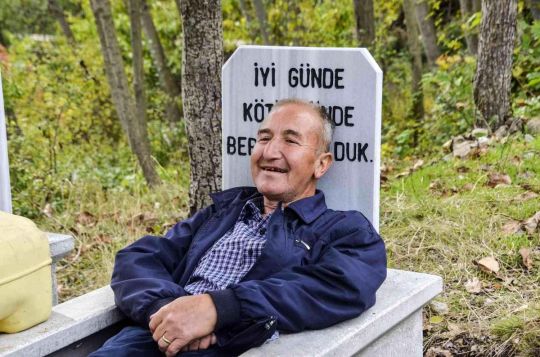
View On WordPress
0 notes
Text

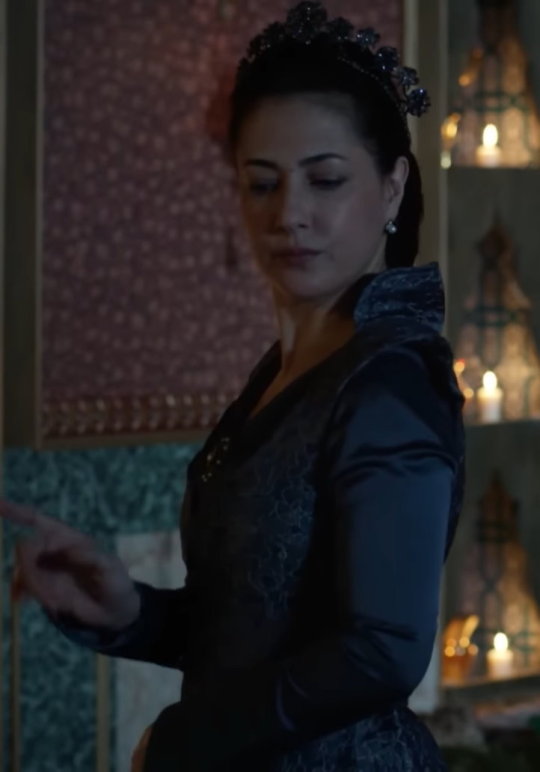
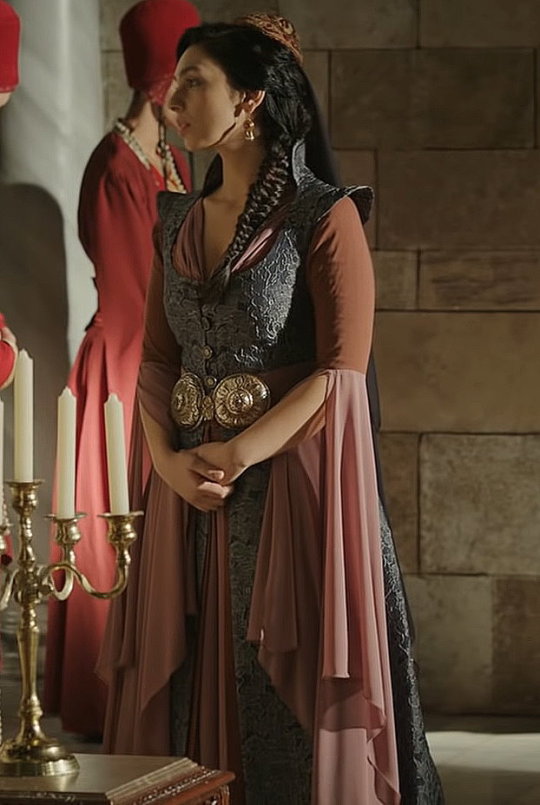
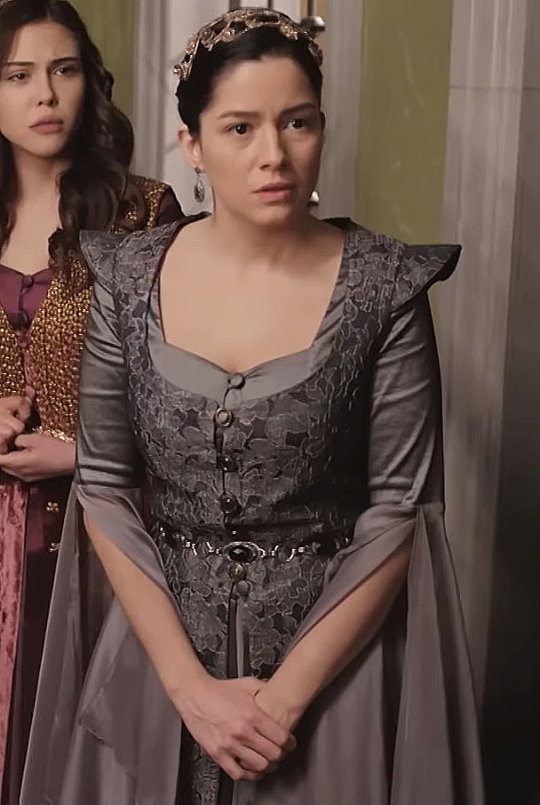
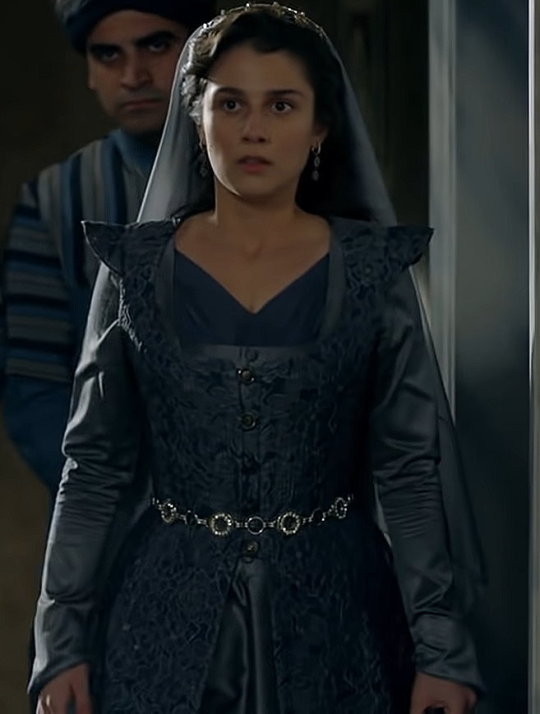
This blue lace kaftan first appeared on Hürrem Sultan in the twenty-eighth episode of the third season of Magnificent Century. It was briefly worn again by Fatma Sultan in the twenty-third episode of the fourth season.
Magnificent Century: Kösem used the kaftan again on Handan Sultan's kalfa Gülperi Hatun in the fifth episode of the first season. Firdevs Hatun also wears the kaftan in the twelth episode of the same season. The kaftan makes another appearance in the second season where it is first seen on Meleki Hatun in the third episode.
#Magnificent Century#Magnificent Century Kösem#Magnificent Century Kosem#Muhteşem Yüzyıl#Muhteşem Yüzyıl: Kösem#period drama#costume drama#historical drama#Hürrem Sultan#Hurrem Sultan#Fatma Sultan#Fatma Sultan (Daughter of Hafsa)#Gülperi Hatun#Gulperi Hatun#Firdevs Hatun#Meleki Hatun#recycled costumes#reused costumes
10 notes
·
View notes
Text
bari mücevherlerini düşün aptal.
7 notes
·
View notes
Text
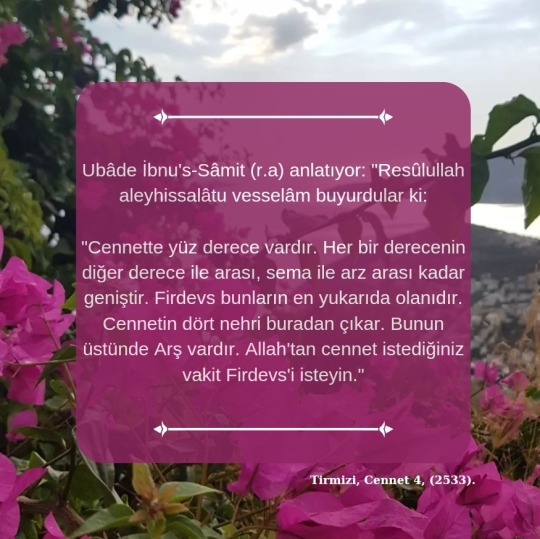
12 notes
·
View notes
Text
23 notes
·
View notes
Text
"Heyecan her yaşta güzeldir ama her durumda sonu güzel bitmez. Tutkuyla atılan yanlış adımlar insanı felakete sürükler. Bazen anlık heyecanlar ömür boyu yük olur insanın sırtında. Pişmanlık olur, utanç olur, vicdan azabı olur ki çekmesi çok zordur. Gençlikte olur diyip geçilemez bazı şeyler. İnsanın koparıp atamayacağı bağları vardır. Arkasını dönüp gidemeyeceği durumlar. İnkâr edemeyeceği borçları vardır. Bütün bunlar anlık heyecanlara heba edilemez.Hayat sadece anlık güzelliklerden ibaret değil, cehennemi de bu dünyada yaşar insan." -Firdevs Yöreoğlu
5 notes
·
View notes
Photo

Dikkate şayan bir ifade; “Kendini başkasıyla kıyaslama.” Aksi takdirde, ya mutsuz ya da kibirli olursun. Cumanız mübarek olsun. https://www.instagram.com/p/CdxPFtbIwER/?igshid=NGJjMDIxMWI=
#cuma#mesaj#dua#ayet#hadis#tesbih#seccade#ramazan#şiir#fıkra#esmail hüsna#hacı firdevs türkmenoğlu camii#sayfasında..
8 notes
·
View notes
Text
Cecil Roth – Doña Gracia (2024)
Tarih, her dönemde dikkate değer isimlerle işlenir.
Bu isimlerden biri de, döneminde oldukça meşhur olmasına rağmen zaman içinde unutulan sıra dışı bir kadın, Kanuni Sultan Süleyman’ın bankerliğini de yapmış Doña Gracia Nasi’dir.
O, sadece bir banker değil, aynı zamanda diplomat, hayırsever ve Yahudi kültürün öncüsü olarak çağdaşları tarafından saygıyla anılmıştır.
Osmanlı himayesindeki Nakşa…

View On WordPress
#2024#Cecil Roth#Doña Gracia#gracia#Osmanlı’ya Hizmet Eden Yahudi Nasi Ailesi#Saadet Firdevs Aparı#Selenge Yayınları
0 notes
Photo

#kıyamet #zikir #rahman #merhamet #gazap #firdevs #cebrail #azap #sorgu #mizan #terazi #araf #sıratköprüsü #sur #israfil #ölümmeleği #arş #kuran #islam #allah #İbrahim #hicr #nahl #isra #kehf #Meryem #taha #enbiya #hac #müminun https://www.instagram.com/p/CnjTrgGDjJ2/?igshid=NGJjMDIxMWI=
#kıyamet#zikir#rahman#merhamet#gazap#firdevs#cebrail#azap#sorgu#mizan#terazi#araf#sıratköprüsü#sur#israfil#ölümmeleği#arş#kuran#islam#allah#i̇brahim#hicr#nahl#isra#kehf#meryem#taha#enbiya#hac#müminun
0 notes

